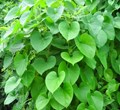
Many Indian households, incorporate natural remedies passed down by Ayurveda into daily life to stay healthy and combat minor ailments. But what if you could grow your medicine cabinet? Here are 5 medicinal plants that thrive in Indian climatic conditions and soil:
1. Tulsi (Holy Basil): The Queen of Herbs
Tulsi, revered as a sacred plant in Hinduism, is also a powerhouse of medicinal benefits. It flourishes in most parts of India, requiring well-drained soil and plenty of sunlight. Tulsi leaves possess antimicrobial, anti-inflammatory, and adaptogenic properties, increasing their effectiveness in relieving coughs, colds, and stress. Regular consumption of Tulsi tea can boost immunity and aid digestion.
Planting Tulsi at home: Sow seeds directly in pots or buy established saplings from nurseries.
2. Aloe Vera: The Soothing Plant
Aloe vera, a succulent with thick, spiny leaves, is a popular choice for homegrown remedies. It thrives in warm, dry climates and prefers sandy or well-draining soil. The clear gel inside the leaves is a natural coolant and moisturizer, ideal for treating burns, sunburns, and skin irritations. Aloe vera juice is great for digestion and constipation.
Tip for growing aloe vera: You may just cut a healthy leaf from the base of a mature plant and allow it to callous over before planting it in a pot.
3. Ashwagandha (Indian Ginseng): The Stress Buster
Ashwagandha, also known as Indian ginseng, is an adaptogenic herb that helps the body adapt to stress. It grows well in most parts of India, preferring well-drained soil and full sun to partial shade. The roots and leaves of Ashwagandha are used in Ayurvedic medicine to fight anxiety, insomnia, and fatigue.
Ashwagandha can be grown from seeds, but it is a slow-growing plant. You can rather purchase a young plant from a nursery for quicker results.
4. Ajwain (Caraway Seeds): The Digestive Aid
Ajwain, a member of the parsley family, is a common spice in Indian cuisine. But its tiny, boat-shaped seeds also hold medicinal value. Ajwain thrives in warm climates and prefers well-drained sandy loam soil. These seeds possess carminative properties, which help relieve bloating, gas, and indigestion. A simple tea made with ajwain seeds can provide quick relief from stomach discomfort.
Tip to grow Ajwain: Ajwain is easy to grow from seeds, requiring minimal care.
5. Lemongrass: The Refreshing Antiseptic
Lemongrass, a fragrant herb with long, stalky leaves, adds a citrusy zest to curries and teas. It flourishes in warm, humid climates and prefers moist, well-draining soil. Lemongrass oil, extracted from the leaves, is a natural antiseptic and antifungal agent. It can be used to treat minor cuts, wounds, and athlete's foot.
How to grow lemongrass: Lemongrass can be cultivated by dividing clumps or planting stalks directly in pots.
With a little care and attention, these medicinal plants can become a valuable addition to your home, offering natural solutions for everyday health concerns. So why not turn your balcony or windowsill into a thriving mini-pharmacy and embrace the power of nature's healing touch?
Disclaimer: These plants are for home remedies and should not be a substitute for professional medical advice. Consult your doctor before using any herbal remedy, especially if you are pregnant, breastfeeding, or taking medications.



















